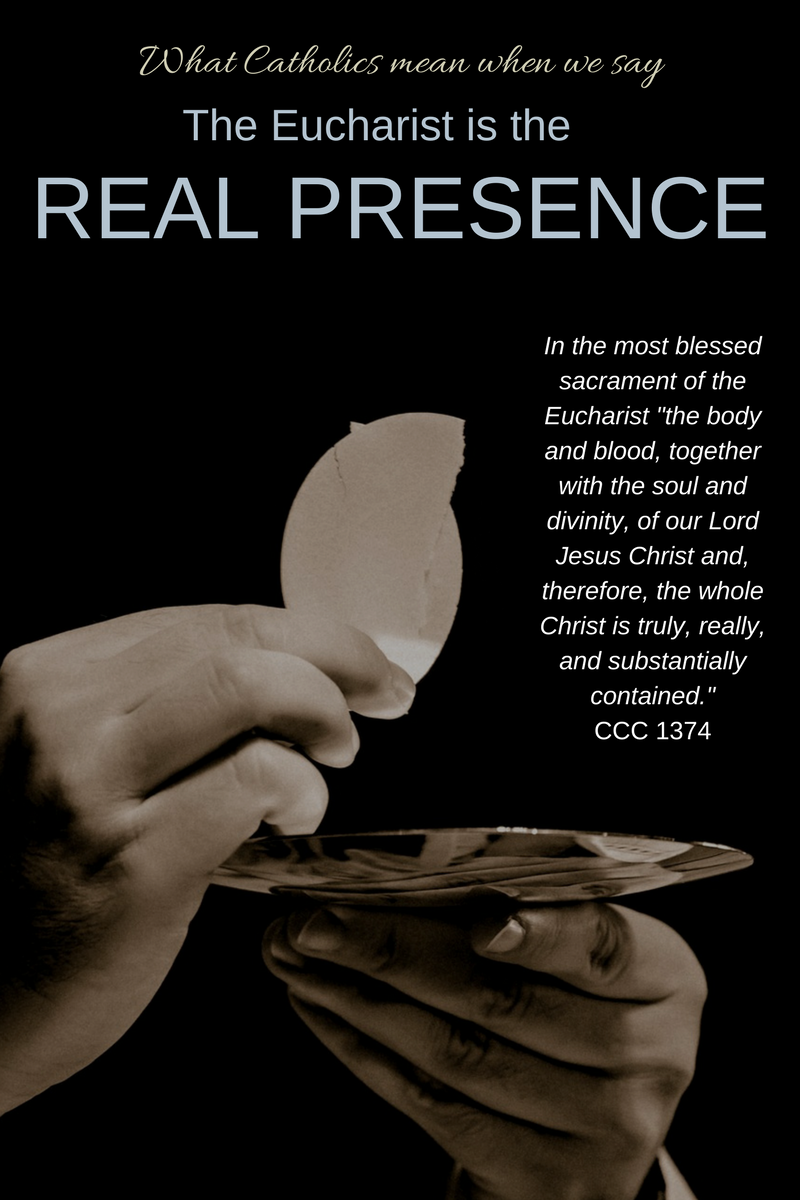 You may be surprised to know that many young Catholics (and some adults) are completely unaware of what we mean when we refer to the “Real Presence.” Having just celebrated the feast of Corpus Christi, now is as good a time as any to discuss this fundamental Catholic doctrine with your students and children. It is one of the great Mysteries of our Faith in which we believe that Christ is really and truly present in the Eucharist – body, blood, soul and divinity.
You may be surprised to know that many young Catholics (and some adults) are completely unaware of what we mean when we refer to the “Real Presence.” Having just celebrated the feast of Corpus Christi, now is as good a time as any to discuss this fundamental Catholic doctrine with your students and children. It is one of the great Mysteries of our Faith in which we believe that Christ is really and truly present in the Eucharist – body, blood, soul and divinity.
The Catechism of the Catholic Church states:
In the most blessed sacrament of the Eucharist “the body and blood, together with the soul and divinity, of our Lord Jesus Christ and, therefore, the whole Christ is truly, really, and substantially contained.” (CCC 1374)
The Youth Catechism very simply tells us,
“Christ is mysteriously but really present in the Sacrament of the Eucharist.” (YOUCAT 216)
At Mass, the Liturgy of the Eucharist begins with the Offertory. Everything that we have comes from God, and this includes the offertory gifts of ordinary bread, water and wine. We offer these gifts back to God so that He will return them to us transformed – consecrated and extraordinary. This transformation happens during the Eucharistic Prayer when the priest, acting in the person of Christ, pronounces the words of consecration, “This is my body,” and “this is my blood.” The Church uses the word “Transubstantiation” to define what is happening here. It refers to the change in substance of the Eucharistic elements into the body and blood of Christ, while maintaining their original appearance of ordinary bread and wine.
But, why does Christ offer himself to us as food?
We might begin our answer with another question: Why do we eat food? We eat food to sustain life, and to nourish our physical bodies. But we all know that one day our bodies will fail us and we will die. Jesus tells us that he is the living bread, which brings eternal life to those who receive it. The Eucharist does what no ordinary food can do. It sustains our spiritual life, and nourishes our souls. When we receive the Eucharist, we experience true communion with Christ. We share not only in his humanity – his body and blood, but in his divinity.
There is an old saying “You are what you eat.” St. Augustine said something similar when speaking about the Eucharist. To paraphrase, he said, “Receive what you are, and become what you receive.” These are good words to reflect on after receiving the Blessed Sacrament.

© 2017 Catechist’s Aide
Leave a Reply